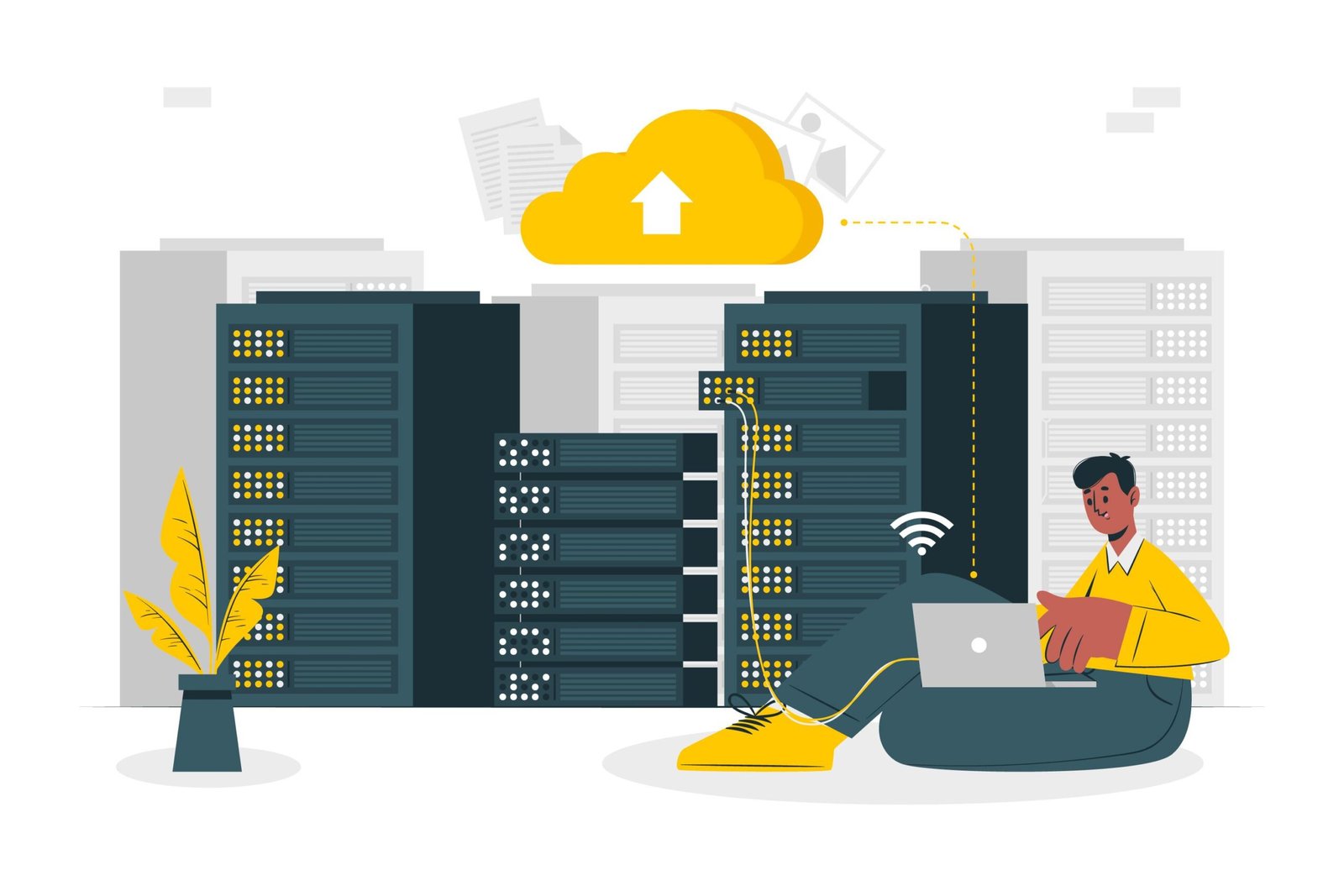
Communications
- May 4, 2023
- 11 min read
- Page Speed Performance
- Blog
I. Introduction
Importance of page speed for website success
The role of web hosting in page speed
II. How Web Hosting Affects Page Speed
Bandwidth limitations
Server response time
Location of hosting server
III. Types of Web Hosting
Shared hosting
Virtual private server (VPS) hosting
Dedicated hosting
Cloud hosting
IV. Choosing the Right Web Hosting Provider
Factors to consider
Evaluating hosting provider performance
Reading user reviews
Understanding hosting plans
V. Tools for Testing Page Speed
Importance of measuring page speed
Popular tools for testing page speed
How to interpret results
VI. Tips for Improving Page Speed
Optimizing website content
Using caching
Compressing images and files
Minimizing HTTP requests
VII. Conclusion
Recap of importance of web hosting on page speed
Importance of page speed for website success
Page speed is one of the most important factors that determine the success of a website. With an increasing number of users accessing websites from their mobile devices, it has become crucial for websites to load quickly. A slow-loading website can result in a poor user experience, increased bounce rates, and a negative impact on search engine rankings. Web hosting plays a critical role in determining the speed at which a website loads.
The Role of Web Hosting in Page Speed:
Server Response Time:
- The server response time is the time taken by the server to respond to a user’s request. It is an important factor that determines the speed at which a website loads. A web hosting provider with fast server response time can ensure that the website loads quickly.
Server Location:
- The physical location of the web hosting server can also impact page speed. If the server is located far away from the user, it can result in longer loading times. Web hosting providers with servers located closer to the user can ensure faster page load times.
Server Resources:
- The amount of resources allocated to a website by the web hosting provider can impact page speed. Websites with insufficient resources can experience slow loading times, especially during peak traffic periods. A reliable web hosting provider will ensure that sufficient resources are allocated to each website to ensure fast loading times.
Check out this related blog post – The Role of Page Load Time on Website Performance
How Web Hosting Affects Page Speed
The type of web hosting you choose and the quality of the server infrastructure can determine how fast your website loads and responds to user requests. A slow web hosting provider can lead to longer loading times, frustrated visitors, and higher bounce rates. Web hosting plays a critical role in determining the speed at which a website loads.
Here are some of the factors that can impact page speed:
Bandwidth Limitations:
- Bandwidth is the amount of data that can be transferred between the server and the user’s device. Web hosting providers may impose bandwidth limitations on websites hosted on their servers. If a website exceeds its allocated bandwidth, it can result in slow loading times. It’s important to choose a web hosting provider that offers sufficient bandwidth for your website’s needs.
Server Response Time:
- The server response time is the time taken by the server to respond to a user’s request. This can depend on various factors such as the server’s processing power, the number of requests being processed, and the amount of traffic on the website. A web hosting provider with fast server response time can ensure that the website loads quickly.
Location of Hosting Server:
- The physical location of the web hosting server can also impact page speed. If the server is located far away from the user, it can result in longer loading times. Web hosting providers with servers located closer to the user can ensure faster page load times.
Types of Web Hosting
Web hosting is an essential service that enables websites to be accessible on the internet. There are several types of web hosting available, and choosing the right type of hosting is crucial in determining the speed at which a website loads. Here are some of the most common types of web hosting:
Shared Hosting:
- Shared hosting involves multiple websites being hosted on the same server. This is the most popular and affordable type of web hosting. However, shared hosting can impact page speed as the server resources are shared among multiple websites. Websites with heavy traffic or complex applications may experience slow loading times on shared hosting.
Virtual Private Server (VPS) Hosting:
- VPS hosting involves a virtual server being created on a physical server. Each virtual server has its own resources and operating system, providing more control and flexibility than shared hosting. VPS hosting can ensure faster page load times as websites have access to dedicated resources.
Dedicated Hosting:
- Dedicated hosting involves a physical server being allocated exclusively to one website. This provides the highest level of control and flexibility, as the website has access to all the server resources. Dedicated hosting can ensure faster page load times as websites have dedicated resources.
Cloud Hosting:
- Cloud hosting involves a network of servers that work together to host websites. This provides high levels of scalability, reliability, and flexibility. Cloud hosting can ensure faster page load times as websites can access resources from multiple servers.
Choosing the Right Web Hosting Provider
Choosing the right web hosting provider is crucial in ensuring that your website loads quickly and provides a positive user experience. Here are some factors to consider when choosing a web hosting provider:
Performance:
- The performance of a web hosting provider is crucial in determining the speed at which your website loads. Look for web hosting providers with fast server response times, sufficient bandwidth, and servers located closer to your target audience.
User Reviews:
- Reading user reviews can provide valuable insights into the reliability and performance of a web hosting provider. Look for reviews from real users, and pay attention to comments on page speed, uptime, and customer support.
Hosting Plans:
- Understanding the different hosting plans offered by a web hosting provider is essential in choosing the right one for your website’s needs. Consider factors such as traffic, website size, and applications when evaluating hosting plans.
Customer Support:
- Good customer support is essential in ensuring that your website runs smoothly. Look for web hosting providers with 24/7 support and multiple channels of communication, such as email, phone, and live chat.
Evaluating hosting provider performance
Before choosing a web hosting provider, it’s important to evaluate their performance. Look for web hosting providers that offer uptime guarantees and have a good track record of reliability. You can also use online tools to test the speed and performance of web hosting providers.
Reading user reviews
Reading user reviews can provide valuable insights into the reliability and performance of a web hosting provider. Look for reviews from real users, and pay attention to comments on page speed, uptime, and customer support.
Understanding hosting plans
Different web hosting providers offer different hosting plans with varying features and resources. Consider factors such as website size, traffic, and applications when evaluating hosting plans. Make sure that the hosting plan you choose can meet your website’s needs.

Tools for Testing Page Speed
Measuring the speed of your website is essential to ensure that it is running efficiently and providing a positive user experience. A slow website can result in higher bounce rates, lower conversions, and a negative impact on your SEO rankings. Here are some popular tools for testing page speed:
Google PageSpeed Insights
- Google PageSpeed Insights is a free tool that analyzes your website’s content and provides suggestions on how to improve page speed. The tool scores your website on a scale of 0-100, with a score of 85 or above indicating that your website is performing well.
GTmetrix
- GTmetrix is another popular tool for testing page speed. The tool analyzes your website’s speed and provides detailed reports on various factors that may be impacting your website’s performance, including page load time, page size, and number of requests.
Pingdom
- Pingdom is a website monitoring tool that includes a page speed testing feature. The tool measures your website’s load time and provides a performance grade, along with detailed reports on performance metrics such as page size and requests.
WebPageTest
- WebPageTest is a free online tool that measures your website’s page speed and provides detailed reports on various factors affecting performance. The tool allows you to choose from various testing locations and provides a breakdown of loading times for individual page elements.
How to interpret results
When using these tools to test your website’s speed, it’s important to understand how to interpret the results. Most tools provide a score or grade based on various performance metrics, along with recommendations on how to improve page speed. Some common metrics that you should look for include:
- Page load time: The time it takes for your website to load completely.
- Page size: The total size of your website’s pages, including all elements such as images, videos, and scripts.
- Number of requests: The total number of requests made to load your website’s pages.
By understanding these metrics and how they impact your website’s performance, you can take steps to optimize your website for faster page speed and better user experience.
Tips for Improving Page Speed
Web hosting plays a vital role in website speed because it determines how quickly your website loads and responds to user requests. If your website is hosted on a slow server, it will take more time to load, which can lead to frustrated visitors who may abandon your website altogether. Therefore, it is crucial to choose a fast and reliable web hosting provider to ensure that your website loads quickly.
Here are some tips for improving page speed:
- Optimizing website content: One of the most effective ways to improve page speed is to optimize your website content. This involves reducing the size of your HTML, CSS, and JavaScript files and eliminating any unnecessary code that could slow down your website. You can use tools like Gzip or HTML minifiers to compress your website files and make them smaller, which will result in faster load times.
- Using caching: Caching is a technique that involves storing frequently accessed data in a temporary storage area to speed up access times. By using caching, you can reduce the time it takes to load your website, as the browser can quickly retrieve the data from the cache instead of requesting it from the server every time. You can use browser caching, server caching, or a content delivery network (CDN) to cache your website content.
- Compressing images and files: Images and files can significantly impact your website’s speed. Large images and files take longer to load, which can slow down your website. Therefore, it is essential to compress your images and files to reduce their size without compromising quality. You can use image compression tools like TinyPNG or JPEG Optimizer to compress your images and tools like Gzip or Brotli to compress your files.
- Minimizing HTTP requests: Each time a user visits your website, the browser sends HTTP requests to the server to retrieve the website files. The more HTTP requests your website generates, the longer it takes to load. Therefore, it is crucial to minimize the number of HTTP requests your website generates. You can do this by reducing the number of images and files on your website, using CSS sprites, or combining multiple files into one.
Conclusion
In conclusion, web hosting is a critical factor that influences page speed. A fast and reliable web hosting provider can significantly improve your website’s speed, resulting in a better user experience and higher search engine rankings.
To recap, some of the key factors that impact page speed include optimizing website content, using caching, compressing images and files, and minimizing HTTP requests. By implementing these techniques, you can improve your website’s speed and provide a better experience for your visitors.
Here are some key takeaways:
- Web hosting is a critical factor that influences page speed.
- A slow-loading website can lead to a poor user experience and lower search engine rankings.
- Choosing a fast and reliable web hosting provider is crucial for improving page speed.
- Optimizing website content, using caching, compressing images and files, and minimizing HTTP requests are some of the techniques that can improve page speed.
Website speed is a crucial factor for the success of any online business. By choosing the right web hosting provider and implementing the techniques outlined above, you can significantly improve your website’s speed, provide a better user experience, and achieve higher search engine rankings. So, Why are you waiting get more information at Code & Peddle.
Related Blog Posts – Expert Tips for a Flexible and Effective Web Development Design Process
















